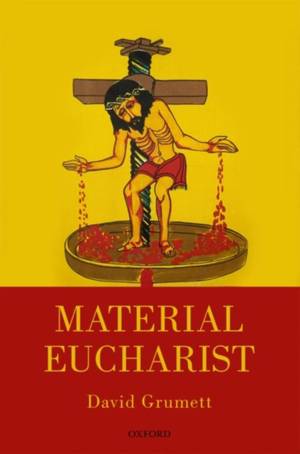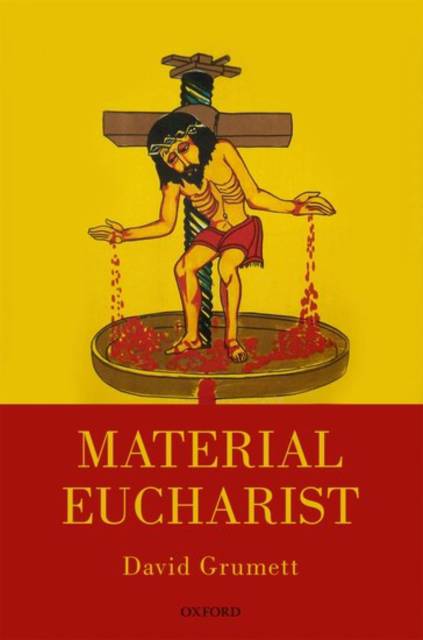
- Afhalen na 1 uur in een winkel met voorraad
- Gratis thuislevering in België vanaf € 30
- Ruim aanbod met 7 miljoen producten
- Afhalen na 1 uur in een winkel met voorraad
- Gratis thuislevering in België vanaf € 30
- Ruim aanbod met 7 miljoen producten
Zoeken
Omschrijving
Material Eucharist interprets the Eucharist through its material elements of bread and wine. Drawing upon a rich variety of biblical, patristic, medieval, and modern texts and traditions, David Grumett brings together theological reflection and liturgical action and shows their mutual dependence. For both theologians and liturgists, a central concern is the matter out of which the created order has been made, from which issues of community and social justice are inseparable. The ingredients of bread and wine anticipate, in their harvesting and manufacture, the formal church liturgy, which is extended back into the world by the transformative priestly action of laypeople. Indeed, the transforming presence of Christ in the Eucharist as flesh and substance is theologically grounded in his transformative presence in the wider created order, as expressed in eucharistic giving and exchange between churches and their wider communities. Rooting the Eucharist in materiality suggests its primary context to be the death and resurrection of Christ in the power of the Spirit, in which its recipients may share. The many aspects of theology and liturgy with which the book deals have large implications for how the Eucharist is understood in a range of academic disciplines, and for how it is celebrated in churches today.
Specificaties
Betrokkenen
- Auteur(s):
- Uitgeverij:
Inhoud
- Aantal bladzijden:
- 336
- Taal:
- Engels
Eigenschappen
- Productcode (EAN):
- 9780198767077
- Verschijningsdatum:
- 30/11/2016
- Uitvoering:
- Hardcover
- Formaat:
- Genaaid
- Afmetingen:
- 160 mm x 236 mm
- Gewicht:
- 612 g

Alleen bij Standaard Boekhandel
+ 531 punten op je klantenkaart van Standaard Boekhandel
Beoordelingen
We publiceren alleen reviews die voldoen aan de voorwaarden voor reviews. Bekijk onze voorwaarden voor reviews.











